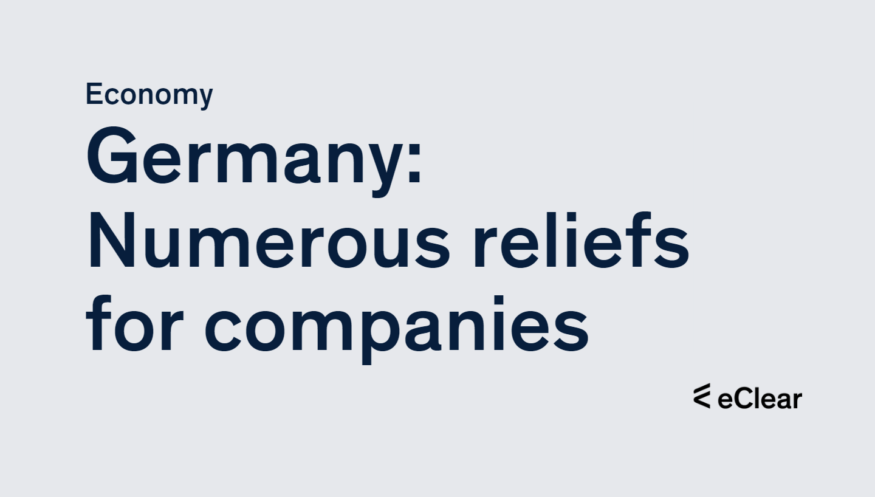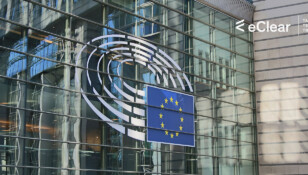1. Reduction of VAT on gas supplies and inflation compensation bonus
- With retrospective effect from 1 October 2022, the VAT rate on gas supplied through the natural gas network has been reduced from 19 to 7 per cent for the period ending 31 March 2024.
- From 26 October 2022 until 31 December 2024, employers can grant employees tax- and social security-free allowances and benefits in kind to mitigate increased consumer prices up to a maximum amount of EUR 3,000.00. The tax allowance is granted per employment relationship. Employers, therefore, do not have to check whether an employee already receives a subsidised allowance or payment in kind in the context of another employment relationship.
2. Inflation compensation act
The Bundestag and the Bundesrat passed the Inflation Compensation Act on 10 and 25 November 2022:
- The basic allowance (taxable subsistence minimum) will be raised from EUR 10,347.00 to EUR 10,632.00 in the assessment period of 2023 and EUR 10,932.00 in 2024.
- In addition, from the 2023 assessment period, the remaining tariff benchmarks for the tax rates will be shifted. This is intended to mitigate the so-called “cold progression” and ensure that citizens benefit from wage increases.
3. Annual Tax Act (JStG) 2022
The Bundestag and Bundesrat passed the Annual Tax Act 2022 on 2 December and 16 December 2022. The law was promulgated on 20/12/2022. Among other things, it brings the following changes:
Taxes on income and revenue
- Pension expenses can be deducted from the 2023 assessment period as special expenses.
- From the 2023 assessment period, the employee lump sum will be raised from EUR 924.00 to EUR 1,230.00, the savers’ lump sum from EUR 801.00 to EUR 1,000.00 (from EUR 1,602.00 to EUR 2,000.00 in the case of joint assessment) and the education allowance from EUR 924.00 to EUR 1,200.00.
- The linear depreciation for wear and tear (AfA) of new buildings that serve residential purposes and are completed after 31 December 2022 is 3%.
- Contrary to the original plans, the possibility of confirming a lower linear AfA compared to straight-line depreciation by Section 7 (4) sentence 2 EStG, with the consequence of higher depreciation, remains.
- The temporal scope of application for special depreciation in new rental housing construction according to Section 7b EStG has been extended to dwellings constructed based on a building application submitted after 31 December 2022 and before 1 January 2027 if they meet specific sustainability criteria.
- From 1 January 2023, expenses for a home office are only tax-deductible if the office forms the centre of the entire business and professional activity. Under this condition, the actual expenses or a lump sum amounting to a maximum of EUR 1,260.00 per year can be deducted.
- The daily rate of the so-called “home office flat rate” continues to be EUR 6.00. The lump sum amount is increased and amounts to a maximum of EUR 1,260.00 per year for activities performed after 31 December 2022. The deduction is excluded insofar as expenses for a home office are deducted, or the home costs are claimed for tax purposes within the scope of double housekeeping.
With the first-time application for the assessment period 2022, the regulations on the taxation of the gas/heat price brake will come into force. The financial assistance that an end consumer (natural and legal persons who purchase energy for their consumption) of natural gas and heat receives through the Natural Gas Heat Emergency Assistance Act (EWSG) (so-called “December assistance”) will be added to their income on a pro-rata basis or in full, depending on the amount of taxable income.
Value added tax
- Furthermore, from 1 January 2023, the definition of entrepreneurial status will be amended to the effect that it applies irrespective of whether the entrepreneur has legal capacity under other provisions. This clarifies that fractional ownership communities and other associations of persons without legal capacity can also be entrepreneurs within the meaning of the VAT Act.
- Concerning the tax exemption of intra-Community supplies according to section 4 no. 1 b) UStG, the reference in sentence 2 to section 18a (10) UStG will no longer apply as of 1 January 2023. The submission of a correct recapitulative statement thus remains a prerequisite for the tax exemption of intra-Community supplies. According to Section 18a (10) UStG, the one-month deadline is only relevant for avoiding fines.
Valuation law
For valuation dates after 31 December 2022, the Valuation Act (BewG) provisions on the valuation of developed land, in leasehold cases and of buildings on third-party land will be adapted to the requirements of the Real Estate Valuation Ordinance (ImmoWertV). The changes can lead to higher property values, especially in the case of transfers of single-family and multifamily houses and residential property, and thus to an increase in the basis of assessment for inheritance and gift tax.
Income from the operation of photovoltaic systems generated after 31 December 2021
With effect from 1 January 2023, a zero tax rate will come into force for the supply and installation of photovoltaic systems if installed on or near private dwellings, flats, and public and other buildings used for activities serving the public good. This spatial requirement is deemed to be fulfilled if the gross capacity of the photovoltaic system does not exceed 30 kW (peak) according to the market master data register. As a result of the new regulation, the system’s operator will be able to use the small business regulation for VAT purposes without financial disadvantages in the future.
The taxation is applicable for
- Photovoltaic installations on or in single-family houses (including outbuildings) or non-residential buildings with a gross installed capacity of up to 30 kW (peak) according to the market master data register, or
- Photovoltaic installations on, at or in other buildings with an installed gross capacity of up to 15 kW (peak) per residential or commercial unit, according to the market master data register.
- that are exempt from income tax and trade tax. The exemption is limited per taxpayer or co-entrepreneur to income from the operation of (several) installations with a total output of up to a maximum of 100 kW (peak).
4. Over-profit tax for certain energy companies
As part of the Annual Tax Act 2022, the legislator introduced an EU energy crisis contribution in Germany to implement Regulation (EC) 2022/1854. Through the EU Energy Crisis Contribution Act (Energie-KBG), a tax on above-average profits (amounting to 33 per cent of the tax base) will be levied (following the more detailed provisions of the Act) for periods after 31 December 2021 on companies that have generated at least 75 per cent of their turnover from the economic activities in the extraction, mining, petroleum refining or manufacture of coke products referred to in Regulation (EC) 1893/2006. Skimming off any excess profits of electricity producers is not the subject of the EU Energy Tax Act.
5. Acceleration of external audits
The Federal Government’s draft law on the implementation of Council Directive (EU) 2021/514 of 22 March 2021 amending Directive 2011/16/EU on administrative cooperation in the field of taxation and modernising procedural tax law (the so-called DAC 7 Implementation Act) provides, in addition to the implementation of the Directive, for amendments to the provisions of the Fiscal Code aimed at accelerating external tax audits and reducing their duration from start to completion. In this respect, regulations are also envisaged through which the taxpayers’ obligations to cooperate are tightened, such as short submission deadlines for transfer pricing documentation, possibilities for standardising digital interfaces and the new institute of a qualified cooperation request (including penalty payment).
Source: ihk.de







